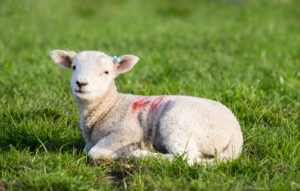Sheep farmers are likely to be among the worst hit if the UK leaves the EU without a deal, farmers have said, with estimates showing that as many as 2 million lamb carcasses could go to waste and thousands of farmers could go out of business.
The EU is the UK’s biggest export market for lamb with no other farming sectors as reliant on that market, making it the most exposed to economic harm if tariffs are imposed. While about 82% of annual beef exports from the UK are sold in the rest of Europe, along with about 78% of the dairy produce not consumed in the UK, 90% of all lamb and other sheep meat exports go to the EU.
Estimates by the Country Land and Business Assocation show that if exports remain around the same level as last year, but tariffs are imposed, about 3 million lamb carcasses normally destined for export to the EU would not find a market there.
Sarah Hendry, the director general of the CLA, which represents 30,000 UK landowners and rural businesses, said many farmers could be forced to give up their livelihoods if tariffs followed a no-deal Brexit.
“Many farmers are under the most enormous pressure,” she said. “They fed the nation through lockdown and are readjusting their business for a new life outside the common agricultural policy. Now many face the complete collapse of their market.”
She called for the government to put emergency financial support in place for farmers facing potential ruin if there is no deal with the EU.
“If the EU imposes tariffs, many farmers will no longer have customers for their produce, and their businesses could easily collapse,” she said. “Lamb is one of the most obvious sectors to be hit, and a no-deal could see them affected in spring next year when they go to market.”
Some unsold lambs would return to the UK market, where they would depress prices and leave thousands of farmers facing hardship and potentially going out of business. Even if UK lamb consumption increased, and as many unsold carcasses as possible were put in cold storage, the CLA estimates that up to 2 million could go to waste.
Farmers will struggle to find a market in the UK for their smaller lambs, in particular, as the whole carcasses are often sold as a delicacy in the rest of Europe, unlike in the UK where cuts from larger animals are preferred.
The prospect of steep tariffs being imposed comes after a year in which, for many, lockdown meant the loss of crucial catering and restaurant markets and a scramble to find other ways to get their produce to market. Extreme weather, including the wettest February on record followed by one of the driest springs, has also made for a poor harvest of some staples, with wheat yields plunging by close to a third.
Farmers who have diversified into other businesses, such as opening B&Bs, campsites or farm visits, have also had a rollercoaster year.
A spokesperson for the Department for Environment, Food and Rural Affairs said: “We are fully committed to agreeing a trade deal with the EU from 1 January 2021. However, as any responsible government would, we are also preparing for the possibility of no deal, and have contingency plans in place to minimise disruption for the farming sectors as much as possible.
“No decisions have been taken on any sector specific interventions, including the sheep sector, post the end of the transition period. Any possible intervention must be dictated by the actual market situation at the time.”
